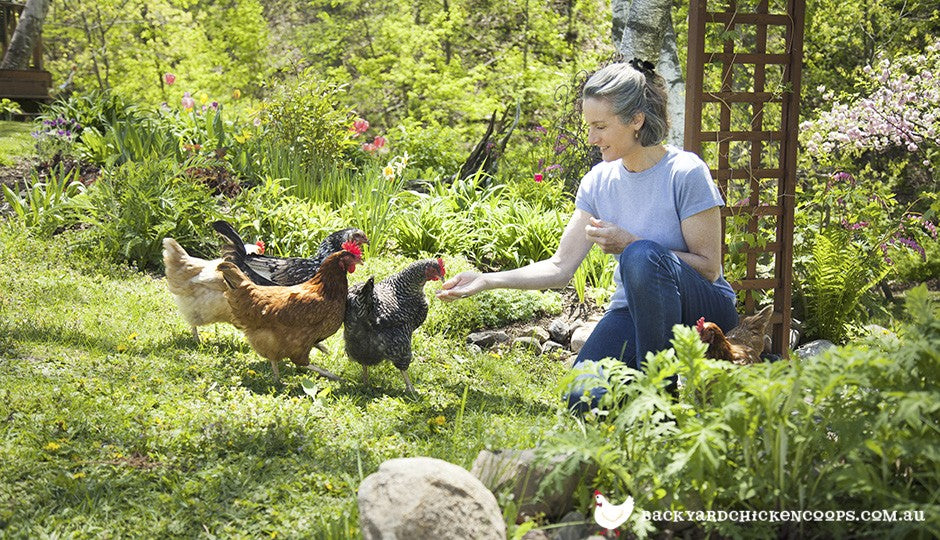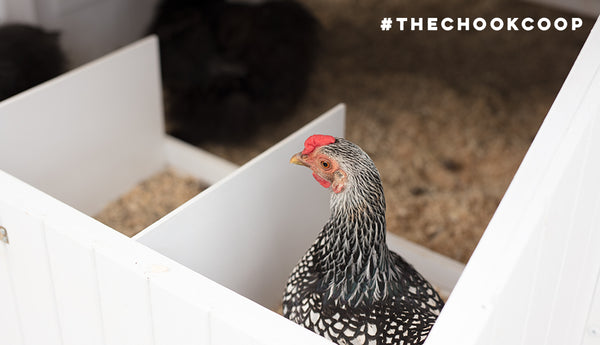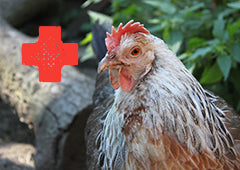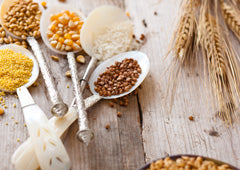Healthy hens are happy hens and happy hens, well, they’re just great fun! Having a small backyard flock of chickens can bring much joy into your life. Chickens are delightful creatures who will entertain you with their antics and endear themselves to you. They’re easy to care for and by spending a little time each day tending to their needs and taking stock of your flock, you will be rewarded with some fine feathery friends. So, here are five fantastic ways to keep your hens happy by being healthy.
1. Observe Them
Ideally, the best way to keep your hens healthy and happy is to simply observe them. So, hanging out with your hens is good for their health. Nothing beats knowing your girls well. Know their individual personalities and quirks, as some hens will be naturally quieter and coo-y, while others, you know the ones, will be just plain boisterous, mischievous and frisky.
Physically and behaviourally, there are signs and symptoms to look for that would suggest a hen is feeling a bit under the weather. I like to do a general observation of my flock as a whole each day watching how they interact with one another and move about. Healthy chickens will be lively and busily pecking the ground, eating and drinking, catching up on the latest gossip, very dustily bathing, preening, and chasing flying insects that took a wrong turn, and even pecking at their flock-mates just to keep the pecking order in order. Also, I like to do an up close and personal health check about once a week or so by picking up each hen and examining her. With some ladies this is easier said than done, I know. Anyway, combs and wattles should be a nice bright waxy red color and not too pale. Eyes should be clear and alert, although in this precarious position, some will appear wild eyed and crazy, but relax, I assure you, this is normal! Feet should be free of cuts or scrapes which could lead to infection. Lastly, gently part their feathers and downy fluff underneath and check their skin for parasites and lice.
By doing these regular health checks, you will be able to spot any problems or potential problems and take appropriate action. So, if you notice that a hen is off to the side, looking a little weary or lethargic, or just much quieter than her usual self, I’d take a closer look.
2. Applause, Applause for Apple Cider Vinegar
Apple Cider Vinegar (ACV) is an age old jack of all trades. It’s a healthy water additive and it’ll also help spruce up your chicken coop. (See #3) By adding about 1 - 2 tablespoons per 4 litres of your hen’s drinking water, the acidic properties of ACV alter the PH of the water making it an unfriendly environment for harmful organisms to grow. ACV will also help lessen slime in the water, help your hens to battle the stress of very hot days, help your chickens to digest their food better and also encourage the good bacteria to thrive in their digestive system while discouraging the bad.
3. Cleaning and Dusting
Coop cleanliness is a sure fire way to promote good health in your backyard flock. Spending a little time each day scooping up droppings and discarding loose feathers is a great way to prevent illness. Soiled and wet bedding is a breeding ground for harmful disease causing organisms. Some simple tools I like to have handy are a hand shovel for scooping, a scraper for stubborn stuck on waste, a metal rake and shovel for when the bedding needs to be completely mucked out and replaced which I usually do about every month. My hens simply go crazy at the sight of fresh straw in their house. The Backyard Chicken Coops designs have removable metal cleaning trays, which make this process even easier; in fact it becomes a breeze to clean! Now, enter the mighty Apple Cider Vinegar! ACV is a wonderful natural cleaner for the entire chicken coop, feeders and waterers. Just mix a few teaspoons of ACV with water in a spray bottle and then wipe off with a sponge or rag. Routine use will help to disinfect and inhibit dust, mildew, mold, and odors from forming in your coop.
Simply put, chickens prefer to be clean. Besides foraging and eating, they will spend a good part of their day dallying in the dust, shaking all that bath dust off and then preening themselves. By providing a “bathing beauty” area for your hens, you will be helping them to rid themselves of dirt, any possible external parasites, and any miscellaneous debris.
4. Feeding Your Flock
Proper nutrition will ensure that your hens will grow and flourish, lay LOTS of eggs, and chat the days away. It is imperative that your hens always, always, always have clean fresh drinking water. This will vary with the seasons, so be sure to check it twice a day in those scorching summer days! Chicken feed should match the developmental stages of your hens. Begin with starter feed, either medicated or non for wee ones just hatched and up to 8 weeks (if your chicks received the coccidiosis vaccine, do not feed medicated starter as it will cause the vaccine to be ineffective), move on to grower feed for the adolescents and up to 18 weeks, and lastly, the big one, layer feed, for when those egg-cellent eggs begin to pop out. Each is formulated with the proper amount of protein so important to a hen’s development. And, please be sure to NEVER feed layer feed to younger hens, as the calcium content needed for egg production can cause internal damage to immature hens. I also like to supplement my hen’s feed with yummy healthy treats such as pumpkin seeds, apple chunks, greens, corn cobs, raisins and grapes, and of course, leftovers from dinner (more on treats for chickens to come soon). Bon appetit!
5. Give Your Feathery Friends Fun and Freedom
Free ranged chickens are definitely healthier. Chickens have the innate desire to roam and forage. They are naturally curious and want to explore their territory. Research also shows that eggs laid by free range chickens are indeed healthier for our diets. I try to offer my girls a bit of feathery freedom once a day depending on the weather. They literally fly out of their coop and head for their favorite digs. And, I get to hang out with them yet again. It’s definitely a win win situation.
As chicken keepers, we want to do an eggcellent job when caring for our feathered friends. For chooks of all ages, make sure that you've got the knowledge you need to raise a happy, healthy flock. Did you know 67% of chicken keepers surveyed experienced a chicken health or behaviour issue in the first 12 months that they didn’t know how to handle?
But don’t worry! Our feathered friends over at Chickenpedia have created a Chicken Healthcare Course. It is a comprehensive online course that covers everything you need, including what to look for in an unhealthy chicken and how to support your egg-laying hens to optimal health. All of their courses are really well structured and filled with vital knowledge, which is why I highly recommend them to all of my readers! From raising baby chicks to feeding to behavior, you’ll find valuable information that’ll give you the knowledge and confidence to successfully look after your chickens.
Check out Chickenpedia today. As a member, you will also get access to the ALL of their chicken courses!



















